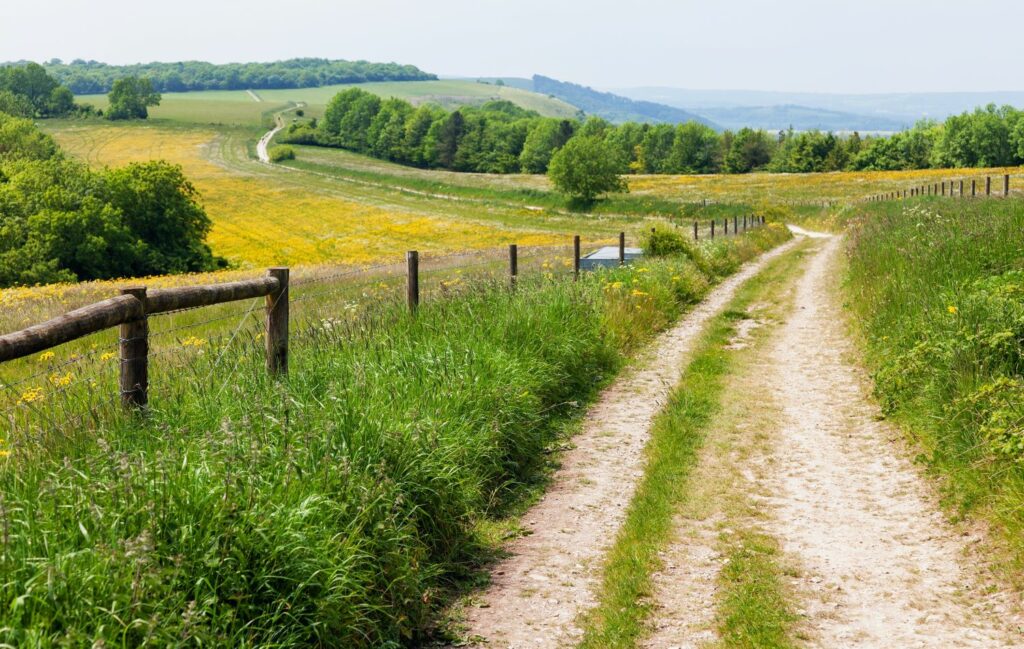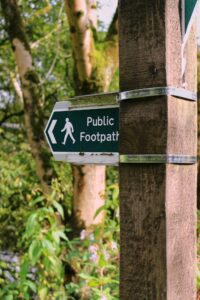Ten essential rules for countryside etiquette
2nd December 2022
With the countryside being a popular destination for recreational activities, both visitors and landowners have a responsibility to ensure rural areas are safe to enjoy for all.

Planning your countryside adventure in advance will help you stay organised and make the most of your visit.
On days when there is no work ahead and the rain finally subsides, many choose to head for the countryside to unwind and enjoy nature.
However, there are some unwritten rules to keep in mind to make sure everyone is doing their part in looking after the local wildlife and those who call the countryside home.
Keep to the footpath and avoid trespassing on private land
If possible, visitors should stick to footpaths and use gates instead of climbing over fences as farmers will have to repair any damage. If the path crosses agricultural land where crops are grown, take extra care not to stray from the trail.
Stay away from land that is marked private and if a landowner asks you to leave, respect their wishes. While trespassing in itself is not a criminal offence in the UK, the owner of the land can still sue visitors if they refuse to leave.
It can also be useful to look up whether access to an area is restricted during certain times of the year, such as breeding seasons.
Leave gates the same way you found them
It is an unwritten rule of the countryside to leave gates the same way you found them. If you’re in a group, you should also make sure the last person knows how to leave the gate.
Many farmers have easements on their lands, which allow the public to legally cross them. Since gates are used to keep livestock in or allow them access to a field, there is always a reason they were left a certain way.
Do not disturb wildlife or farm animals
Avoid approaching wild or farm animals and always give them plenty of space, especially if they have young ones around.
If you come across livestock that is injured or distressed, try and contact the farmer to inform them. In case of a wild animal, reach out to the nearest wildlife rescue or rehabilitation centre or call the RSPCA helpline on 0300 1234 999.
Take your litter home
Littering in nature is unacceptable and can harm wildlife and the environment. If there isn’t anywhere to dispose of your waste, collect it and take it home rather than leaving it behind.
It is every visitor’s responsibility to look after nature and not cause damage or disturbance. Littering isn’t just irresponsible; it is an offence and can lead to prosecution in more serious cases.
If you have a dog, always clean up after them as dog mess can cause infections. Make sure they have a regular worming routine and dispose of bags in the nearest bin.
Don’t light a fire unless it’s a designated area
With climate change causing more frequent warm and dry weather, the risk of wildfires is higher than in previous years. Therefore, visitors to the countryside should take extra care to only light fires in designated areas to protect nature.
In addition, smokers should make sure they discard of cigarettes safely and any glass that could potentially cause a fire should be disposed of.
Keep your dog on a leash around livestock
In the UK, it is a legal requirement to keep dogs on a short leash at all times around livestock, even if they respond to a call. This is to stop escaped dogs from chasing livestock and causing stress to farm animals.
Farmers understand that people like to spend time with their dogs in the countryside. However, chasing can cause serious damage to their livestock, which is why farmers can legally destroy dogs if they are posing a threat to their herd or flock.
Sheep worrying has been a major issue in the UK countryside, and there have been many reports of dogs causing injury or death to sheep. The stress from being chased can also cause the panicked animals to damage fences in trying to escape or pregnant ewes to lose their lambs.
Even if your dog is obedient, keeping him on a leash around farm animals is the safest way to enjoy the countryside and shows that you respect the farmers whose land you are on.
Keep the noise down
Live and let live –be considerate towards others spending time in nature by keeping noise to a minimum. This is especially important on campsites when you are in close proximity to other people. Chances are they will appreciate your efforts and will also respect your presence.
Leave your car in a public parking lot
When driving to your destination, make sure you leave your car in a public parking lot and pay the necessary fees. Avoid parking on someone’s private drive or the side of country lanes if possible.
Also, be mindful of vulnerable road users and slow down when approaching pedestrians, cyclists or horse riders on country roads. If you stumble upon a herd of animals crossing the road, be patient and do not sound your horn.
Warn visitors to your land of any dangers
If you own land along which the public has right of way, you should take steps to warn visitors about any potential dangers such as:
- Work involving machinery
- Unused mines
- Unstable cliffs
- Dangerous tides or deep water
- Livestock movement
You also have a responsibility to keep rights of way usable and carry out regular maintenance if necessary. This may involve clearing vegetation from paths, gates and bridges and removing any obstructions.
To help visitors act responsibly, make sure signs are easy to follow and in good condition. You may also want to secure gates open if you wish for visitors to leave them as found.
Plan in advance and have fun
Planning your countryside adventure in advance will help you stay organised and make the most of your visit. Check the weather, routes and local attractions and enjoy a fun and memorable trip to the wilderness.
For more information on the rules to follow when spending time in rural areas, read the Countryside Code issued by Natural England here.

